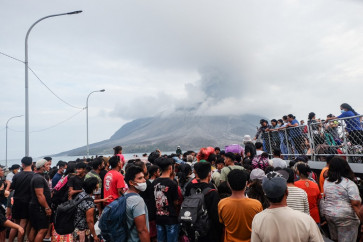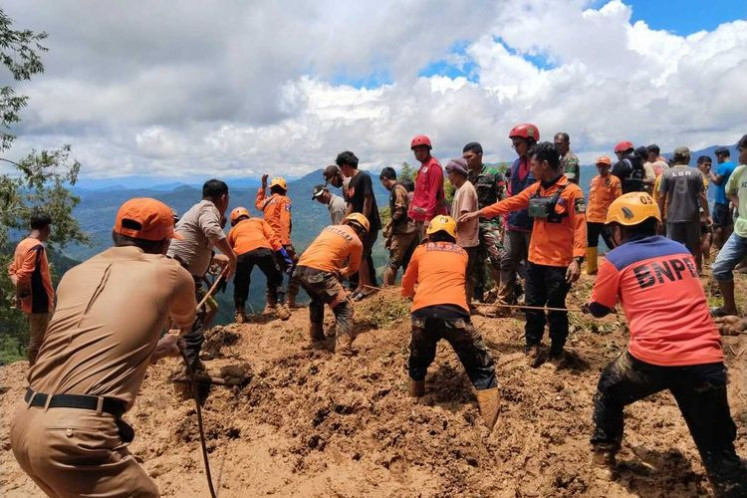Civil society groups to propose new draft for state secrecy bill
Media associations and NGOs will draw up their own version of the controversial state secrecy bill to present to the government, after the latter withdrew its version following intense pressure from civic groups
Change Size

M
edia associations and NGOs will draw up their own version of the controversial state secrecy bill to present to the government, after the latter withdrew its version following intense pressure from civic groups.
"We'll make a draft that is compatible with democracy and press freedom," Agus Sudibyo, from the Science, Aesthetics and Technology Foundation, said Wednesday at a discussion on the bill.
"The defense minister said he would seek input from civil society organizations regarding a new draft, so we'll make a draft to give to him."
Agus thanked President Susilo Bambang Yudhoyono, Defense Minister Juwono Sudarsono and legislators for acquiescing to the demands from the civil society organizations.
"I also want to thank the media for giving a voice to our demands," he said.
Nezar Patria, chairman of the Alliance of Independent Journalists (AJI), said he understood the government's need for a state secrecy law.
"But there must be a clear distinction between confidential information and information that deserves to be made public," he said.
He added that in drafting a secrecy bill, the government's need for secrecy should be balanced against the public's right to know the truth.
"Therefore the new secrecy bill must take into account the public information law and the press law," Nezar said.
He added civic groups were in strong opposition to the previous bill because of its broad definition of what constituted confidential information.
"The previous bill talked of military secrets, bureaucracy secrets, political secrets and financial secrets," he said.
"The public would have been denied any chance of knowing anything."
Nezar added the withdrawn bill may have been a ploy by the government to undermine the public information law.
He also denounced what he said was "the impunity of public officials taking part in state secrecy activities".
He pointed out that under the previous bill, public officials who misused their authority could avoid prosecution by citing state secrecy, while ordinary citizens in possession of state secrets could be punished.
"It's the job of officials to keep the secret, yet the citizens will be punished," Nezar said.
He cited past cases in which military officers had marked up the prices of weapons bought by the military.
"Without budget transparency, such cases might repeat," he said.
Toby Mendel, from Article XIX, an NGO promoting freedom of expression, said international standards existed on drafting such a bill.
He added certain information needed to be kept confidential, while the public's right to know should be upheld, thus necessitating public input in the drafting of the bill.
"That wasn't done in the case of the first draft," he said.
Toby said information such as details of weapons purchased by the military may be deemed classified, but other items, such as the total military budget and details of non-weaponry expenses, should be made public.
A committee should be formed, he went on, to oversee the implementation of the law, with civil society groups given a role on the committee. (mrs)









